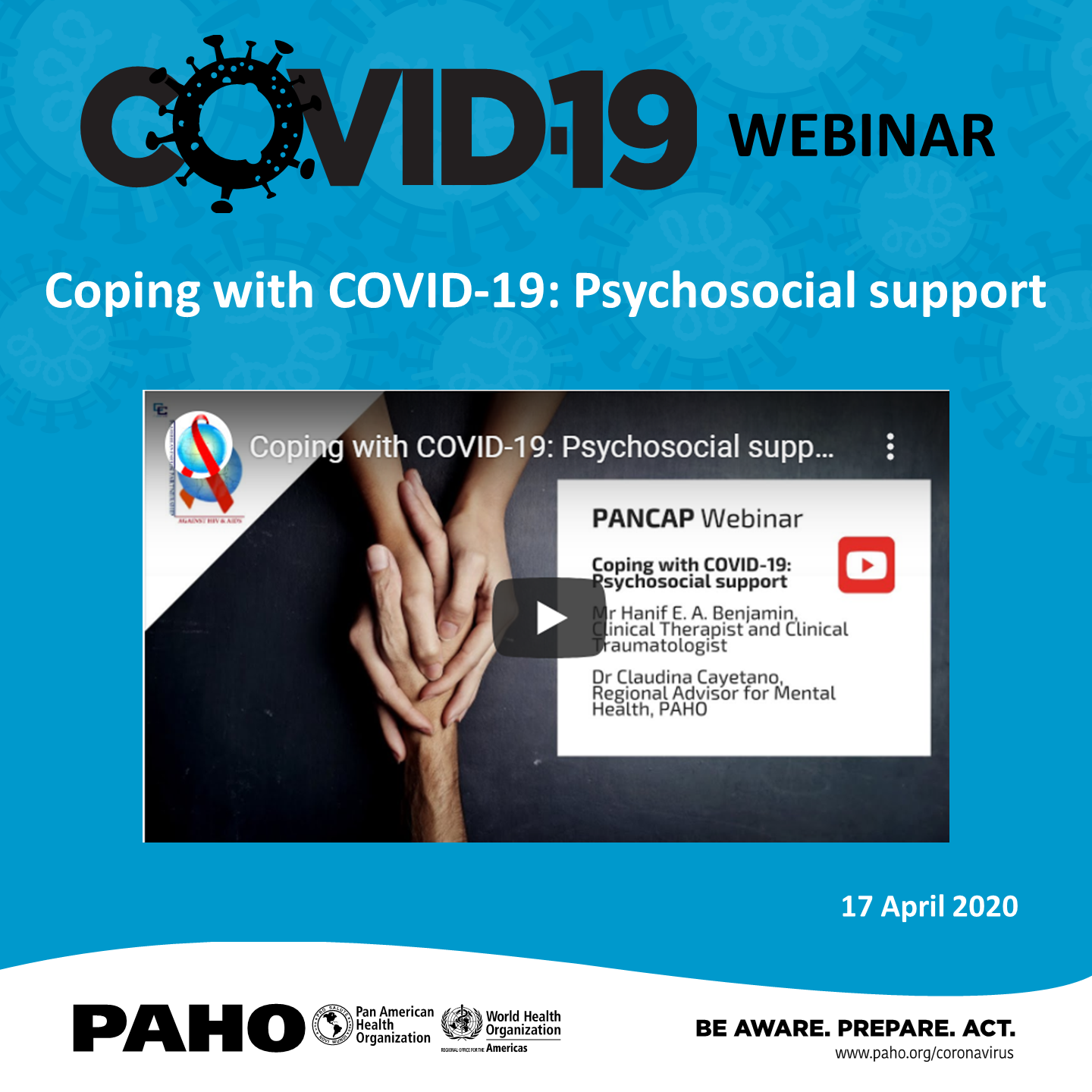
COVID-19 has disrupted our lives and daily routines. The Pan Caribbean Partnership against HIV and AIDS (PANCAP) and the Pan American Health Organization (PAHO) have collaborated on a webinar which focus on the mental health and psychosocial impact of COVID-19. The webinar highlights the impact on persons with underlying conditions, people with disabilities, older adults, and children, among other vulnerable groups. 225 participants attended this webinar.
- To highlight the impact on persons with underlying conditions, people with disabilities, older adults, and children, among other vulnerable groups.
- To address psychosocial support for adolescents during the pandemic.
Dr. Benjamin presented on COVID-19 and psychosocial support for adolescents specifically. Research shows that youth behavior and thinking, often marked by risky behavior and reduced self-regulation, can be attributed to their developmental stage, in which their brains are not yet fully developed. This is important for family and caregivers of adolescents to understand and consider during COVID-19; teens in particular may struggle to socially distance themselves from their peer networks and may not be equipped emotionally and socially to deal with the uncertainties that come with the epidemic. We can support the mental health of adolescents during the pandemic by creating opportunities for them to talk about how they feel, trying to understand and validate what they are experiencing, and by helping them to access professional support when needed.
Dr. Cayetano spoke on the stressors and common responses to the COVID-19 pandemic, with a focus on populations at disproportionate risk and key implications for risk communication and community engagement. Populations which may require more psychosocial support during the pandemic include children; the elderly; pregnant women; people living with HIV; people with disabilities; those with pre-existing physical and mental conditions; and ethnic, sexual and gender minorities, among others. The key messaging and recommendations for action related to psychosocial support in these groups is distinct.
For more information related to the topic, please consult the Mental Heatlh Bulletin (May - June, Vol 15 No. 2) and all other volumes.
- Hanif E. A. Benjamin, Clinical Therapist and Clinical Traumatologist, The Centre For Human Development Group of Companies Limited
- Claudina Cayetano, Regional Advisor for Mental Health, PAHO

